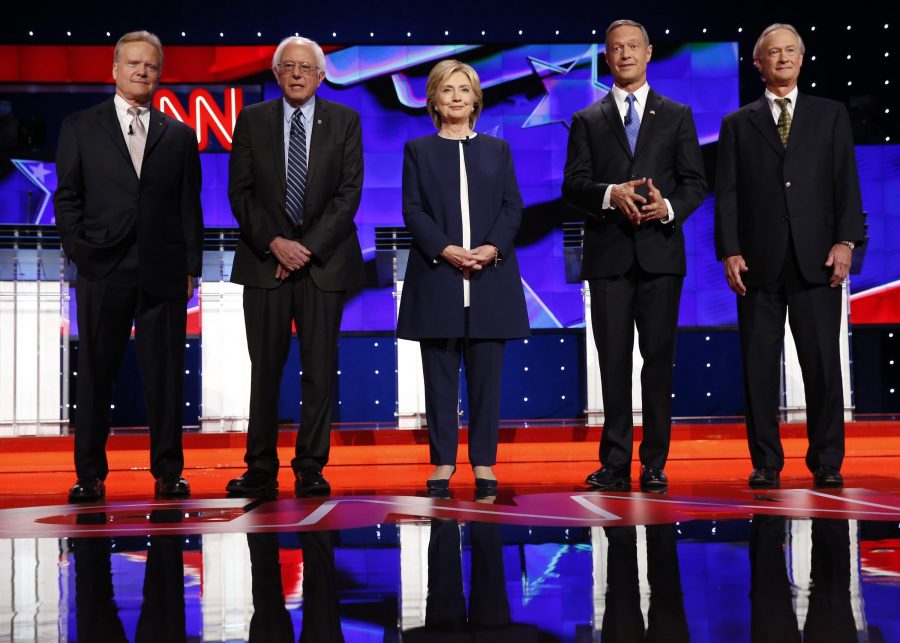Call last night’s Democratic debate “The Hillary and Bernie Show.”
While the pair are a clear one and two — especially given Sen. Bernie Sanders’ energized campaign — former Secretary of State Hillary Clinton remains the favored candidate in the primaries. Currently, Clinton leads Democratic polls with 43.3 percent of votes, according to RealClear Politics, a curator of political coverage. A second wind to Sanders’ efforts could push his 25.1 percent past Clinton.
But FiveThirtyEight, a data-based news organization, doesn’t foresee any potential second wind meaning much — according to the site, polling numbers aren’t the strongest indicator of success in primaries.
“In presidential primaries, endorsements have been among the best predictors of which candidates will succeed and which will fail. So we’re keeping track,” the site says.
According to FiveThirtyEight’s system of weighted points, Clinton leads Democratic candidates with 356 points. Despite high polling numbers, Sanders only chimes in with two points.
So if Sanders’ chances of actually winning the primaries are so low, what role do Sanders and the other candidates serve?
While Clinton is the likely candidate to come out of the Democratic party, we can’t disregard Sanders, Gov. Martin O’Malley, former Sen. Jim Webb and Gov. Lincoln Chafee’s roles here — the pressure they mount on Clinton keeps her honest and improves her policies.
The media has made Clinton’s knack for altering her stances based on public perception or political climate well known — especially on issues such as marriage equality, the for-profit prison system, President Barack Obama’s immigration policy, the Iraq War, the Keystone XL Pipeline and, most recently, the Trans-Pacific Partnership.
CNN debate host Anderson Cooper pointed out this tendency in his first question to Clinton last night.
“Will you say anything to get elected?” he asked.
Clinton replied, “I do absorb new information. I do look at what’s happening in the world.”
Cooper pushed, “Secretary Clinton, with all due respect, the question is about political expediency.”
“I have a range of views,” Clinton admitted. “But they are rooted in my values and my experience.”
Given the stances of her opposition, Clinton has flip-flopped her views numerous times to fit the political climate — effectively pushing her from center to left on the spectrum.
Last week, Rachel Eckhardt, a writer for The Hill, a political news site, wrote on what she calls the “Sanders effect,” following Clinton’s denunciation of the TPP. During her time as Secretary of State, Clinton supported the pact. Recently, she opposed the pact after facing pressure from Democratic candidates, like Sanders.
“I am glad that she has reached that conclusion,” Sanders said in a CNN article last week. “This is a conclusion that I reached from day one.”
An analysis for NBC News’ “Meet the Press,” determined that Sanders serves as a voice for the Democratic left, pushing Clinton to adopt his liberal policies.
“Party activists have largely conceded that Clinton will be the Democratic presidential nominee, but they want to use the next year to force her to take progressive stands including a minimum wage of $12 or higher and guaranteed debt-free, four-year college for all American students,” the NBC article said.
These are issues college students can get behind.
Clinton may have won the debate, but Bernie and the others pulled their weight and will push her to the left, making us all winners.


